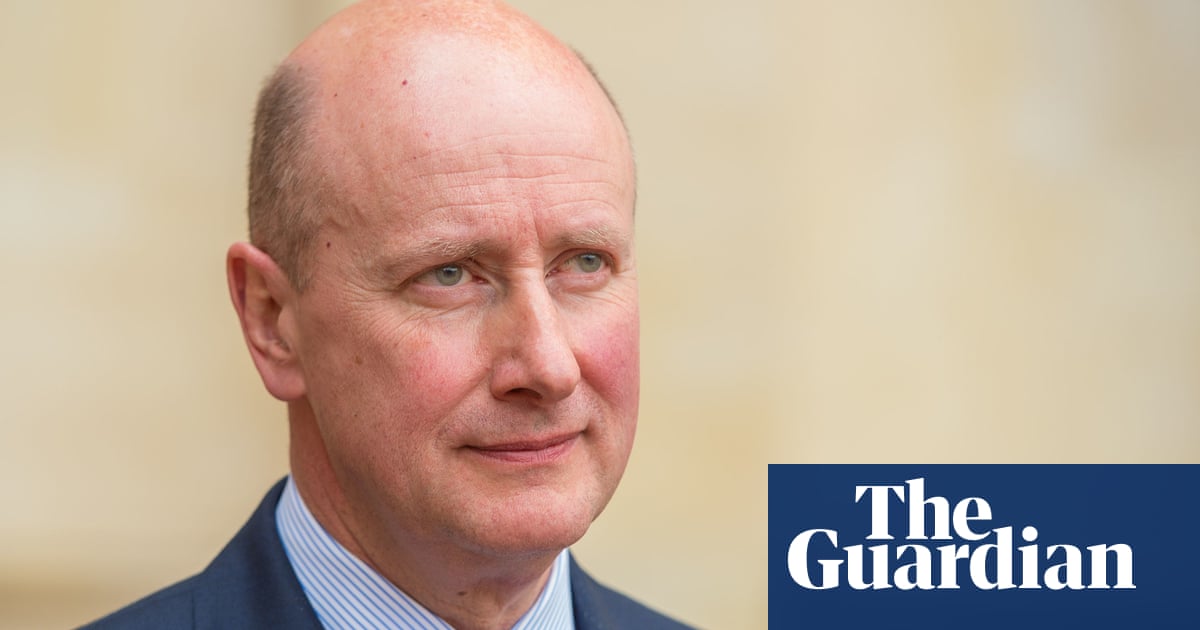
Downing Street has insisted the government remains committed to reducing the size of the House of Lords despite the creation of 36 new life peers last week, the second-highest number added to the upper house for more than two decades.
The new peerages – which include figures closely associated with Boris Johnson’s political career and the Brexit campaign – came as research showed the Lords was becoming even more unrepresentative of the general population.
Not a single peer comes primarily from a manual or skilled trade background, according to data from the Electoral Reform Society. As the UK faces its greatest public health crisis in more than 100 years, just 2.2% work in healthcare, compared with one in 10 of the general public.
Boris Johnson’s spokesman has meanwhile declined to comment on any of the individual peerages, such as for the Russian-born newspaper owner Evgeny Lebedev and the Brexit-supporting former cricketer Ian Botham, saying only that people were “nominated in recognition of their contribution to society”.
The spokesman also declined to say whether Johnson agreed with the views of Colin Parry, the peace campaigner whose son Tim died in the 1993 IRA bombing in Warrington. Parry has condemned the elevation of the former Brexit party MEP Claire Fox, who has refused to apologise for having defended the IRA’s planting of the bomb, when she was a member of the Revolutionary Communist party.
Responding to the list of appointments, Darren Hughes, the chief executive of the Electoral Reform Society, said the House of Lords was looking “more and more like a retirement home for the PM’s allies”.
Johnson loyalists and allies who were also handed peerages included his chief strategic adviser, Edward Lister; Veronica Wadley, the former Evening Standard editor who supported Johnson during his London mayoralty, and Charles Moore, who was his editor at the Daily Telegraph.
Others included James Wharton, a former Tory MP who ran Johnson’s 2019 campaign to replace Theresa May as party leader, and Daniel Moylan, a combative Eurosceptic who advised him as London mayor and, later, on Brexit.
The elevation of Moylan, formerly a deputy leader at Kensington and Chelsea council – where he played a key role in planning – also came under attack on Monday from Grenfell Tower survivors and firefighters. Moylan was described by the Grenfell United group as being “at the heart of a culture that held residents in contempt”.
There was also a peerage for Lorraine Fullbrook, a former Tory MP whose husband, Mark, is the business partner of Johnson’s long-term strategy guru Lynton Crosby, and who himself was involved in the prime minister’s 2019 Tory leadership bid. Also nominated was the financier Helena Morrissey, a campaigner for greater female representation on company boards, but also someone who played a key role as a cheerleader for Brexit in the City of London.
The government insisted it would still adhere to a plan agreed when Theresa May was in No 10, which committed to gradually reducing the 800-plus size of the Lords down to about 600.
Norman Fowler, the Lord Speaker, called the creation of the 36 peers “a massive policy U-turn”.
But Johnson’s spokesman denied the policy had been abandoned: “No. It remains the case that the size of the House of Lords needs addressing, but given retirements and other departures, some new members are needed to ensure the Lords has appropriate expertise and it continues to fulfil its role in scrutinising and revising legislation.”
The spokesman said Johnson’s honours roll was “less than other, comparative lists”. However, while several recent lists contained more honours overall, the number of peerages is greater than all but one recent list.
It was exceeded by the 45 peers created by David Cameron ahead of the 2015 general election. Cameron’s resignation list created 16, and Theresa May’s 19. Neither Tony Blair or Gordon Brown had resignation honours lists. Ahead of the 2001, 2005 and 2010 elections, they created 24, 27 and 24 new peers respectively.
After the 1997 election, 57 new peers were created for John Major’s resignation list, but 31 of these were new Labour “working peers”, intended to help reduce the then-Conservative majority in the upper house.
When asked about the relatively large numbers, the spokesman said: “The point I was making is it’s a longstanding convention that individuals can be nominated for an honour or a peerage in recognition of their public and political service, and that prime ministers can draw up dissolution or resignation lists.”
Asked about other comments from Fowler that the size of the Lords, which will rise to 830 members, meant some of the new peers risked being “passengers”, the spokesman said: “All of the individuals were nominated in recognition of their contribution to society and their public and political service. Peers are appointed to further contribute to public service in parliament.”












